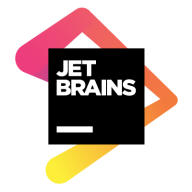


Find out what your peers are saying about GitLab, Google, GitHub and others in Build Automation.
| Product | Market Share (%) |
|---|---|
| GitLab | 12.2% |
| Jenkins | 9.1% |
| TeamCity | 6.8% |
| Other | 71.9% |



| Company Size | Count |
|---|---|
| Small Business | 35 |
| Midsize Enterprise | 9 |
| Large Enterprise | 42 |
| Company Size | Count |
|---|---|
| Small Business | 28 |
| Midsize Enterprise | 15 |
| Large Enterprise | 56 |
| Company Size | Count |
|---|---|
| Small Business | 11 |
| Midsize Enterprise | 4 |
| Large Enterprise | 15 |
GitLab offers a secure and user-friendly platform for CI/CD pipeline management, code repository control, and collaboration, enhancing development speed and efficiency. It facilitates automation with extensive customization and tool integration, ideal for DevOps processes.
GitLab supports source code management, version control, and collaborative development. It's frequently used in CI/CD processes to automate builds and deployments while integrating DevOps practices. GitLab allows companies to manage repositories, automate pipelines, conduct code reviews, and maintain development lifecycles. The platform supports infrastructure and configuration management, enabling efficient code collaboration, deployment automation, and comprehensive repository handling. Many organizations commit and deploy developed code using GitLab's capabilities.
What are GitLab's most valuable features?In specific industries, GitLab serves as a backbone for source code management and CI/CD implementation. Companies leverage its capabilities for infrastructure management and deployment automation, thus streamlining project delivery timelines. Its ability to handle configuration management and code repositories effectively aids in maintaining development lifecycles, making it a preferred choice for organizations committed to enhancing their DevOps practices.
Jenkins is an award-winning application that monitors executions of repeated jobs, such as building a software project or jobs run by cron.
TeamCity is a Continuous Integration and Deployment server that provides out-of-the-box continuous unit testing, code quality analysis, and early reporting on build problems. A simple installation process lets you deploy TeamCity and start improving your release management practices in a matter of minutes. TeamCity supports Java, .NET and Ruby development and integrates perfectly with major IDEs, version control systems, and issue tracking systems.